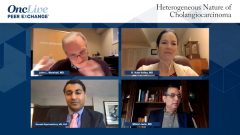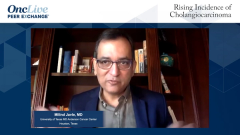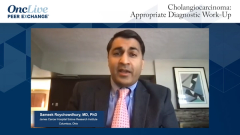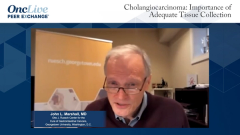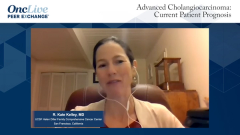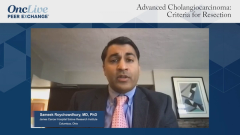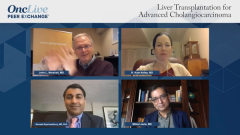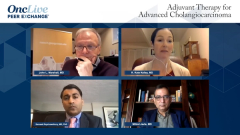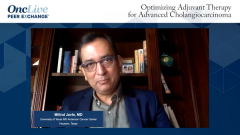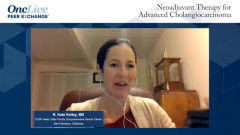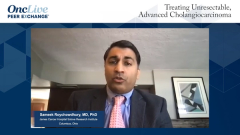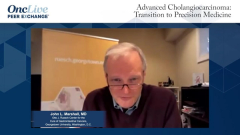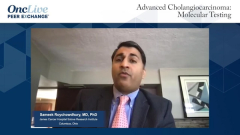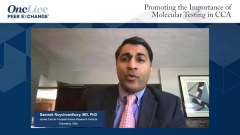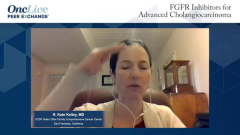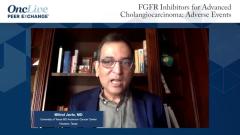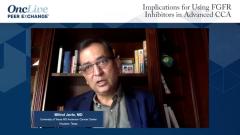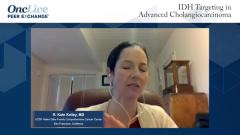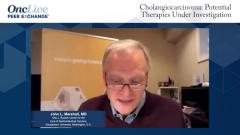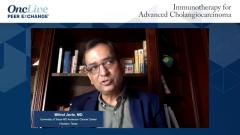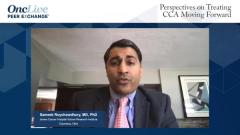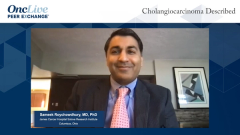
Promoting the Importance of Molecular Testing in CCA
The value of early molecular testing in cholangiocarcinoma and importance of promoting its role to both patients and GI oncologists.
Episodes in this series

John L. Marshall, MD: Sameek, when do you do this for cholangiocarcinoma? Is this a frontline test right away? Can you start treatment and wait on the result, or do you wait on your result before you initiate treatment?
Sameek Roychowdhury, MD, PhD: I recommend earlier testing, especially for advanced or metastatic cholangiocarcinoma. At first diagnosis, you could get a good tissue specimen and start gemcitabine/cisplatin, maybe a clinical trial, or early testing so that you can start thinking about and have time to get those results. Maybe it’s a genetic finding that is not standard of care yet, and maybe you need to find that patient a clinical trial, or maybe you’re going to have to do some complicated paperwork to figure out how to get them an ERBB2 inhibitor, but it’s not yet approved in that indication. Earlier testing is better.
I’ll highlight a plug for Mutations Matter, a campaign from the Cholangiocarcinoma Foundation, as an effort to educate patients themselves, so they know to come to their doctors and say, “My mutation matters. How are you going to test it? What are we going to do? What do you recommend?” We want both the patients and doctors to know that some type of testing needs to happen, so we’re grateful for the Foundation to promote that campaign. Even for lung cancer, there was a lag for testing, and I think we’re all at academic institutions, so you sort of assume molecular testing is happening for lung cancer. There are data where molecular testing isn’t happening at all in some instances, so catching up requires both educating our health care workforce, as well as our patients.
John L. Marshall, MD: Let me second that. They’ve been a great foundation. They’ve been supporting research and have really driven this. I think all of us have done stuff with them and for them. I drive my patients there to their website for information. Just as PanCAN [Pancreatic Cancer Action Network] did such a nice job with the Know Your Tumor program, I think this similar effort in cholangiocarcinoma is great and gives that patient a community. I recommend all of our listeners to consider referring your patients to their website and programming.
TRANSCRIPT EDITED FOR CLARITY


